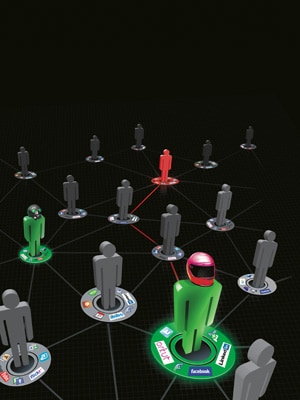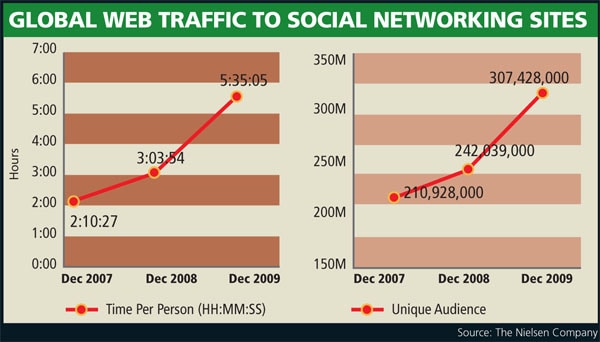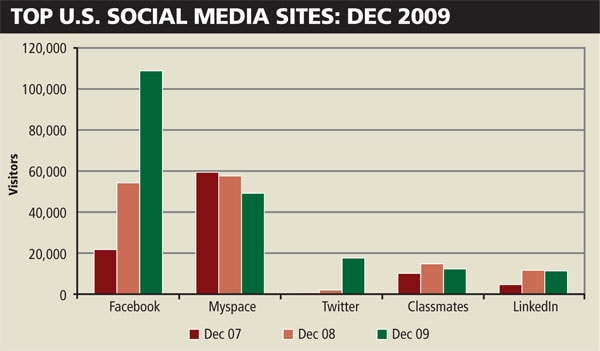
Safe Social Networking
You’re connected to more people than you know, and that innocent photo of last night’s party could harm you in ways you never imagined
One day, out shopping, you meet a long-lost school chum. You chat, exchange news of common friends, share a few laughs about good times. You part, exchanging phone numbers, even joyously arranging a get-together at a future date. But you probably don’t rattle off details of every place you’ve been and every friend you’ve made in the last decade.
Imagine now that instead of bumping into that friend in the mall, you chanced upon his Facebook profile, and sent him a message and an invitation. Unless you’re the paranoid type who keeps your online privacy levels high, you’ve just handed him a summary of the activities of your life, plus access to your photos and videos, personal thoughts, group memberships, and list of other friends. All this despite not knowing the first thing about what he’s been up to and the company he keeps.
 A few days later, you see you have friend requests from a dozen other former classmates, none of whom you were particularly good friends with or would consider contacting yourself; they saw your name pop up in their news feeds, you see. You feel awkward about ignoring them… so you click ‘Accept.’ Each one of them can now see every last detail about your life. That one encounter spawns a dozen more, and each could spawn another dozen. Very quickly, your online connections grow into a vast, overlapping, network of interconnected strands. And you lose control over not only who you’re connected to, but who can steal your information.
A few days later, you see you have friend requests from a dozen other former classmates, none of whom you were particularly good friends with or would consider contacting yourself; they saw your name pop up in their news feeds, you see. You feel awkward about ignoring them… so you click ‘Accept.’ Each one of them can now see every last detail about your life. That one encounter spawns a dozen more, and each could spawn another dozen. Very quickly, your online connections grow into a vast, overlapping, network of interconnected strands. And you lose control over not only who you’re connected to, but who can steal your information.
Your photos could be copied, altered and reposted online. Your email address could be harvested by spammers. Your boss could frown on evidence of your carousing. Your co-workers could shun you for things that are none of their business. Your parents could mortify you by leaving comments on your friends’ updates!
Illustrations: Sachin Pandit, Vidyanand Kamat
Welcome to the Network
MySpace, Facebook, Twitter, Hi5, Orkut, and dozens of other mainstream or niche social networks used to be vast, open playgrounds where people freely posted about the most intimate details of their lives. Today, that is a bad idea.
There are a few major causes of concern. That enormous corporations are building detailed databases and distilling your profile information into marketable slices is dangerous, but abstract; you don’t worry about it that much because you can’t see it happening and you probably wouldn’t be able to identify an incident that has disrupted your life as a result.






